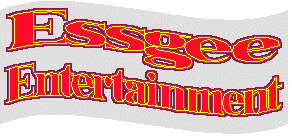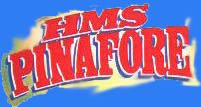The Essgee Entertainment Videos
In the mid-1980s, a young Australian tenor named Simon Gallaher created the role of Frederic in the Aussie production of Papp's Pirates. The Pirate King in that production was an Australian rock icon named Jon English.
When the Papp show closed after three successful seasons, Gallaher (whose G&S pedigree went back to his school days, when he played Mabel in an all-boys production) proposed productions of Iolanthe and The Gondoliers along similar lines, but nothing came of it, and Gallaher went on to other opportunities. His entertainment career flourished, and he formed a record company called Essgee Entertainment (Ess Gee for Simon Gallaher).

Several years later, Gallaher hatched the idea of mounting a revival of the Papp production. After further development work, he decided to mount his own Pirates production, so that he and his team would have greater creative control. Financing was a challenge, but Gallaher eventually found a wealthy "angel" who provided the funds needed to get the show off the ground.

|
Essgee's Pirates premiered in 1994 and was an immediate success. The video went double platinum within three months and became the top selling music video in Australian history. He and Jon English reprised their roles from the Papp production, but all the other cast and production details were entirely new.

|
Buoyed by the success of Pirates, Gallaher, his production team, and most of the same cast, proceeded to do The Mikado in 1995, this time opening in New Zealand and taking the production back to Australia. H.M.S. Pinafore completed the "trilogy" in 1997, the company's third hit in a row.

|
Given Gallaher's obvious enthusiasm for G&S, more forays into the G&S repertory seem likely, but for now, the company is launching productions of The Merry Widow and A Funny Thing Happened on the Way to the Forum, while a Broadway opening for Pirates is planned for late 1998.
All three of the Essgee productions owe a strong debt to Papp's Pirates. There is liberal rewriting, a broad style of physical humor, and a synthesizer based orchestra. Yet, affection for the original operas is evident throughout. There will always be a contingent of traditionalists who contend that such heavy updating is categorically unacceptable. But, those who are open minded to a creative approach cannot help but be swayed by the infectious energy of these productions.
The Essgee Pirates, while clearly indebted to Papp in many ways, still has much that is original. Of the three productions, this one follows the original libretto the most closely. Yet, there is still significant rewriting. For example, "You understand" from Ruddigore is interpolated in the second act. And, as in all the Essgee productions, the women's chorus is replaced by a trio of women called "The Fabulous Singlettes."
The Mikado is the most disappointing of the three. There is substantial rewriting to expand Jon English's role, but it results in excessive distortion to the plot. Caught up in their popularity, the actors ham it up to a point that horsing around takes precedence over the story. Perhaps a performance earlier in the run would have been more taut.
H. M. S. Pinafore is extensively rewritten, but unlike The Mikado, it works! Gilbert probably would have winced, but if you view the show on its own terms, it's a masterful piece of theater. The revolving ship replica that dominates the set is a tour de force in itself, surely the best Pinafore set that I have ever seen.
Correspondent Eleanor Dugan and I are in agreement about Pirates and Mikado, but we diverge on Pinafore:
I found the Pirates brilliant, the Mikado misconceived, and the Pinafore a disaster. Jon English is the star and there is no role in Pinafore for a gravel-voiced rock-star baritone, so two songs were interpolated for him as Dick Deadeye. The violence of this so offended me — although I strive desperately not to be a calcified "purist," I'm still violently distressed when anyone ridicules or makes light of G&S. That's why I was flabberghasted that I adored the Essgee production of Pirates. It took so many liberties, yet each was an embellishment of what was right there in the text, not a dismissal of put down of either G or S. Since Sir Arthur loved parodying other styles, I have a feeling he'd approve of some of the musical takeoffs.
The problem the Essgee company faced was finding a star turn for Jon English — which worked in Pirates, despite the purple pants, a direct steal from Papp — but which (I felt) failed mightily when he was cast as Pooh Bah and collapsed entirely when they interpolated songs for Dick Deadeye, totally unbalancing Pinafore. But obviously if there were one perfect production of each operetta, there'd be no need to ever do another.
Also, the camera work (I felt) and sound were superior on the Australia-taped Pirates, more closeups, while th NZ-taped productions were mostly in long shot and the sound not so crisp. The Major General's usual batch of two dozen daughters between the ages of 18 and 22 (quite a feat!) comes off as more realistic when they become three, and this conceit works okay as sister-cousin-aunt, but fails utterly (I feel) when the three little maids become four.
All three productions have been issued in Australia and New Zealand on PAL video. Pirates has also been issued on CD, but this is a very hard-to-find item. See the individual web pages dedicated to these productions, for detailed reviews.
